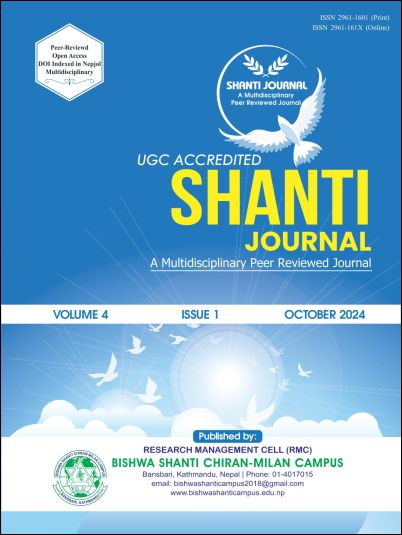Changing aspects of Indian culture: A Sociological Perspective
DOI:
https://doi.org/10.3126/shantij.v4i1.70524Keywords:
prespective, indian, culture, Changing aspects, analyze, existing knowledgeAbstract
Indian culture is a rich tapestry of traditions, beliefs, and practices that have evolved over centuries. However, like any other culture, Indian culture is not static. It undergoes constant change due to various factors such as globalization, urbanization, technological advancements, and socio-economic transformations. This study aims to analyze the changing aspects of Indian culture from a sociological perspective, with a focus on the impact of these changes on organizations and social systems. By delving into Indian society, religion, culture, and social change, this article seeks to contribute new insights to the existing knowledge on Indian culture. Indian culture is deeply rooted in its ancient history, diverse religious beliefs, and regional traditions. It encompasses a wide range of practices, including language, art, music, dance, cuisine, clothing, and social norms. The cultural diversity within India is immense, with each region having its own distinct customs and traditions. This diversity is a testament to the rich heritage of the country. The changing aspects of Indian culture have a significant impact on organizations and social systems. This study provides a sociological perspective on the evolving nature of Indian culture, highlighting the influence of globalization, urbanization, and technological advancements. By analyzing these changes, we can gain a deeper understanding of the complexities of Indian society and contribute to the existing knowledge on Indian culture. It is crucial for individuals, organizations, and policymakers to adapt to these changes and embrace cultural diversity to foster a harmonious and inclusive society.
Downloads
Downloads
Published
How to Cite
Issue
Section
License
Copyright (c) 2024 The Author(s)

This work is licensed under a Creative Commons Attribution-NonCommercial 4.0 International License.
This license enables reusers to distribute, remix, adapt, and build upon the material in any medium or format for noncommercial purposes only, and only so long as attribution is given to the creator.




